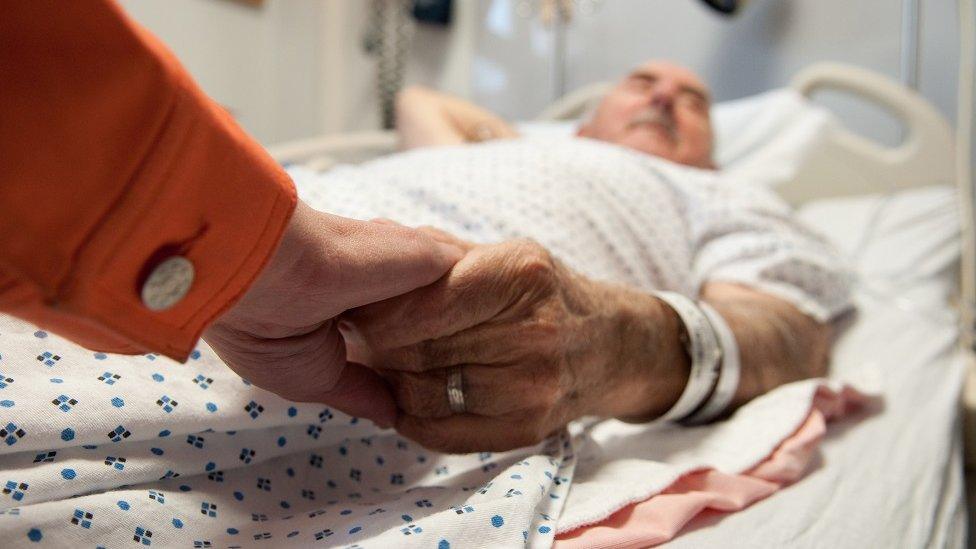'Rural cancer riddle' revealed by University of Aberdeen researchers
- Published

Cancer patients who live more than an hour from a major hospital are diagnosed and treated faster than those who live closer, a new study has found.
But researchers at the University of Aberdeen discovered that these cancer patients were still more likely to die within a year of diagnosis.
It is the first study to examine the impact of travel on the cancer diagnostic process.
The lead researcher described the findings as "perplexing".
The team analysed data from more than 12,000 patients from across north-east Scotland, northern Scotland and the Northern Isles.
Among their findings, they discovered:
Those who live in Orkney and Shetland were 32% more likely to start treatment within 62 days of their GP's referral, compared to those living within 15 minutes of their treatment centre.
Those on the mainland who lived more than an hour's travel from their treatment centre were 42% more likely to start treatment within 62 days of their GP referral than those who lived 15 minutes away.
People in the Northern Isles were 72% more likely to have their diagnosis and treatment started on the same or next day compared to those who lived within 15 minutes of their cancer treatment centres.
Those living more than an hour away or in the islands were significantly more likely to die in the first year after treatment than those living closer by.
Dr Peter Murchie, clinical consultant at the University of Aberdeen, who led the study said: "These contradictory findings on time to diagnosis and mortality are perplexing to say the least.
"The findings suggest that what happens to patients after their diagnosis may be much more important.
"It could be that living in rural areas where you have to travel further to receive treatment might limit treatment choices once a diagnosis has been made.
"There is evidence that when faced with two treatment options, patients might weigh the costs in terms of time, expense and inconvenience of travel against the perceived benefits, for example, choosing surgery over chemotherapy to limit time in hospital.
"Lengthy or difficult travel to a cancer centre or hospital could also result in less engagement with post-primary treatment follow-up, with consequent implications for the effective management of treatment effects and the identification of other follow-up needs."
He said further research of the issue was "essential".
The study has been published in the British Journal of Cancer.